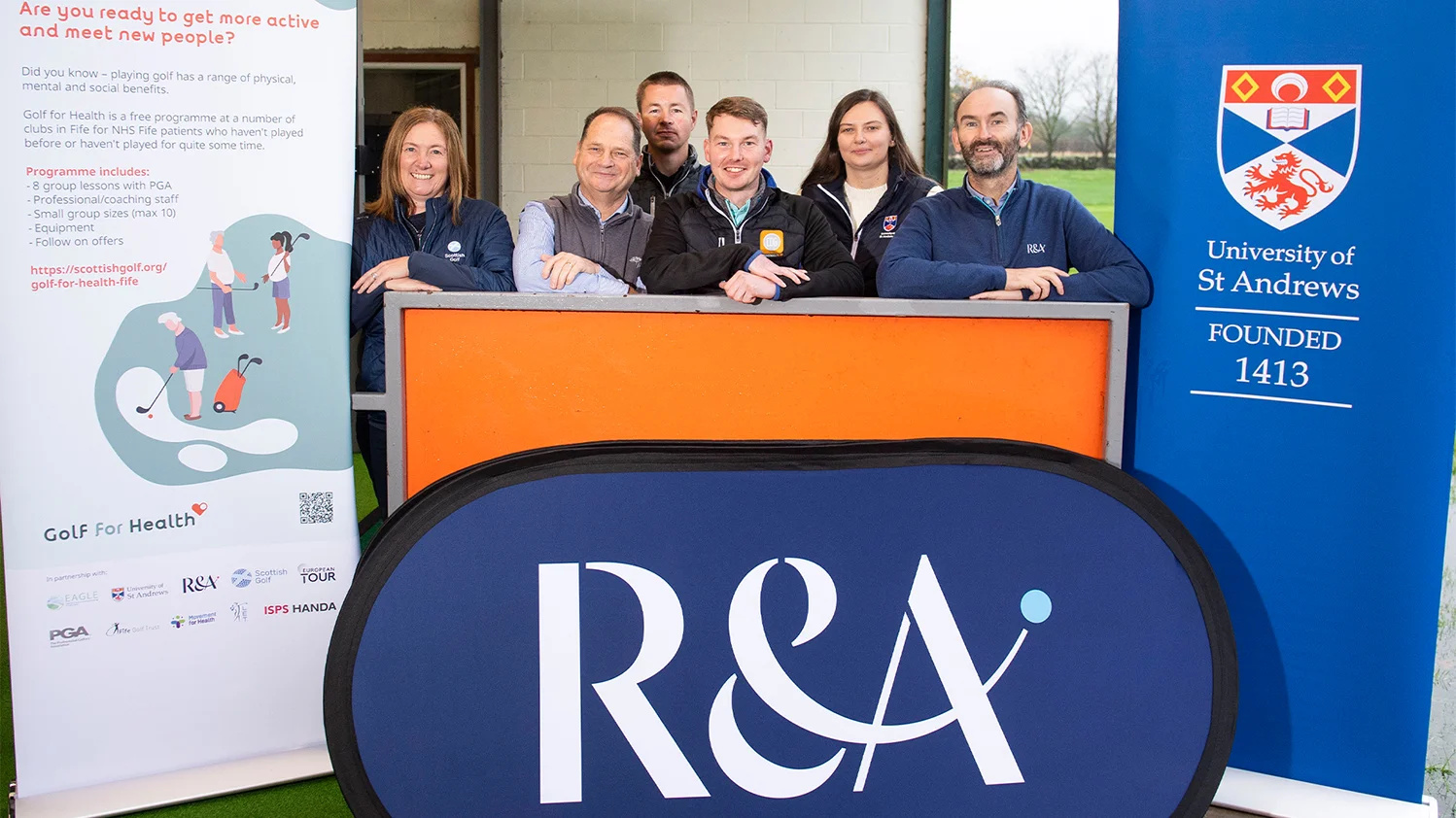Golf and Health
New 'Golf on Prescription' pilot launched in Fife
19 Jan 23
3 mins
(Photo top, from left to right: Karin Sharp, Chief Operating Officer, Scottish Golf; Paul Murphy, Chief Executive Officer, Fife Golf Trust; Alasdair McDonald, PGA Professional, Dunnikier Park GC; Gregor MacDonald, PGA Professional, Cluny Clays GC; Lynsey Brown, Research Fellow, School of Medicine, University of St Andrews; Kevin Barker, Director – Golf Development at The R&A).
A pioneering health initiative has been piloted in Fife with golf ‘prescribed’ for individuals to encourage a more active lifestyle.
The R&A and the University of St Andrews School of Medicine have collaborated with partner organisations to develop ‘Golf for Health’ – a pilot social prescribing project that aims to connect eligible primary care patients with appropriate golf activities in Fife. Researchers in the School have developed a model in partnership with The R&A, Fife Golf Trust, NHS Fife, Scottish Golf, PGA Scotland, the European Tour Group and Ladies European Tour to enable primary care professionals and community link workers to prescribe golf for eligible patients. Respected medical professional Dr Andrew Murray has also been involved.Local clubs involved
With the region staging The 150th Open in St Andrews last July, the initiative has been rolled out over recent months by golf clubs through healthcare professionals to allow patients to experience the widespread physical, mental and social benefits that the sport offers. GP practices in Fife were invited to take part in the pilot study, with participating practices linked with initially four local golf clubs offering a six-to-eight week, free-of-charge programme. The clubs running the programme are Cluny Clays, Dunfermline, Dunnikier Park and Elmwood. Around 30 participants were involved last year with more programmes planned for this spring. Frank Sullivan, Professor of Primary Care Medicine and Medical School Director of Research at the University of St Andrews, leads a team of expert academics in the School of Medicine to support the activity.Golf and Health
We have sought to: raise awareness of the health benefits of golf to encourage interest in participation by people of all ages and abilities; improve the sport’s image; and increase advocacy for golf by government agencies and public health bodies.
Working with the likes of the World Health Organization (WHO), the DP World Tour, other golf organisations and respected sports medics like Dr Andrew Murray, we have been involved in new scientific research.


